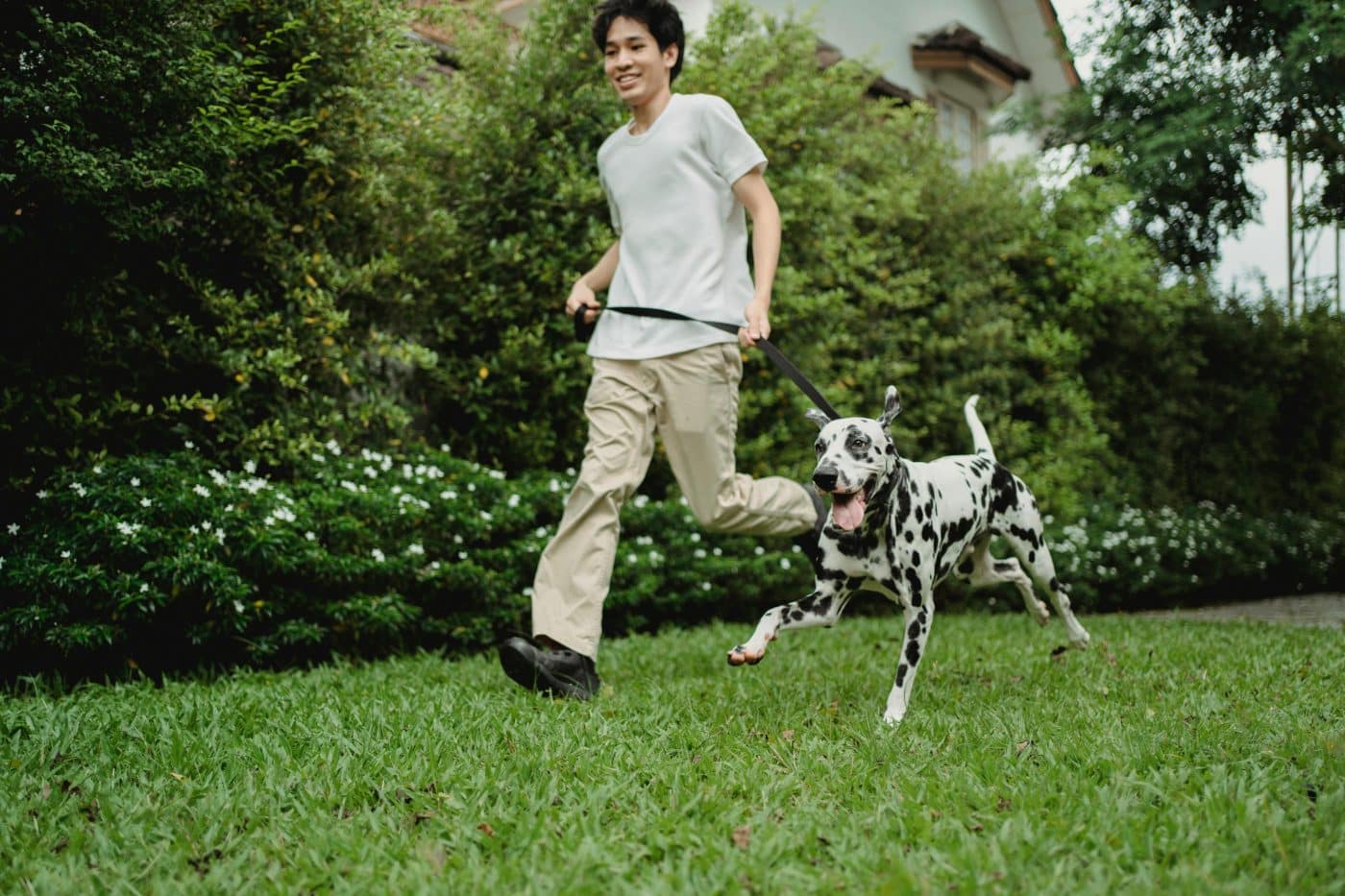 Shutterstock
Shutterstock
Long before GPS apps or travel pillows, dogs trotted beside humans across deserts, icy plains, and ancient trade routes. These loyal companions weren’t just along for the ride—they were hunters, guards, sled-pullers, and comforting campfire snuggle buddies. From nomadic tribes and Viking ships to royal caravans and the Silk Road, these breeds left their paw prints throughout human history. They didn’t just adapt to new environments—they thrived. So if your dog insists on riding a shotgun, it’s not just habit—it’s ancient instinct.
Saluki
 Shutterstock
Shutterstock
Known as the “Royal Dog of Egypt,” the Saluki has been trotting across deserts with humans for over 5,000 years. Revered in the Middle East and often depicted in ancient art, these sleek hounds were favored by royalty and nomadic tribes alike. They’re built for endurance and speed—ideal traits for long treks across arid landscapes. Salukis weren’t just passengers but hunters, scouts, and elegant status symbols in motion. They still carry themselves like they remember ancient pharaohs personally.
Siberian Husky
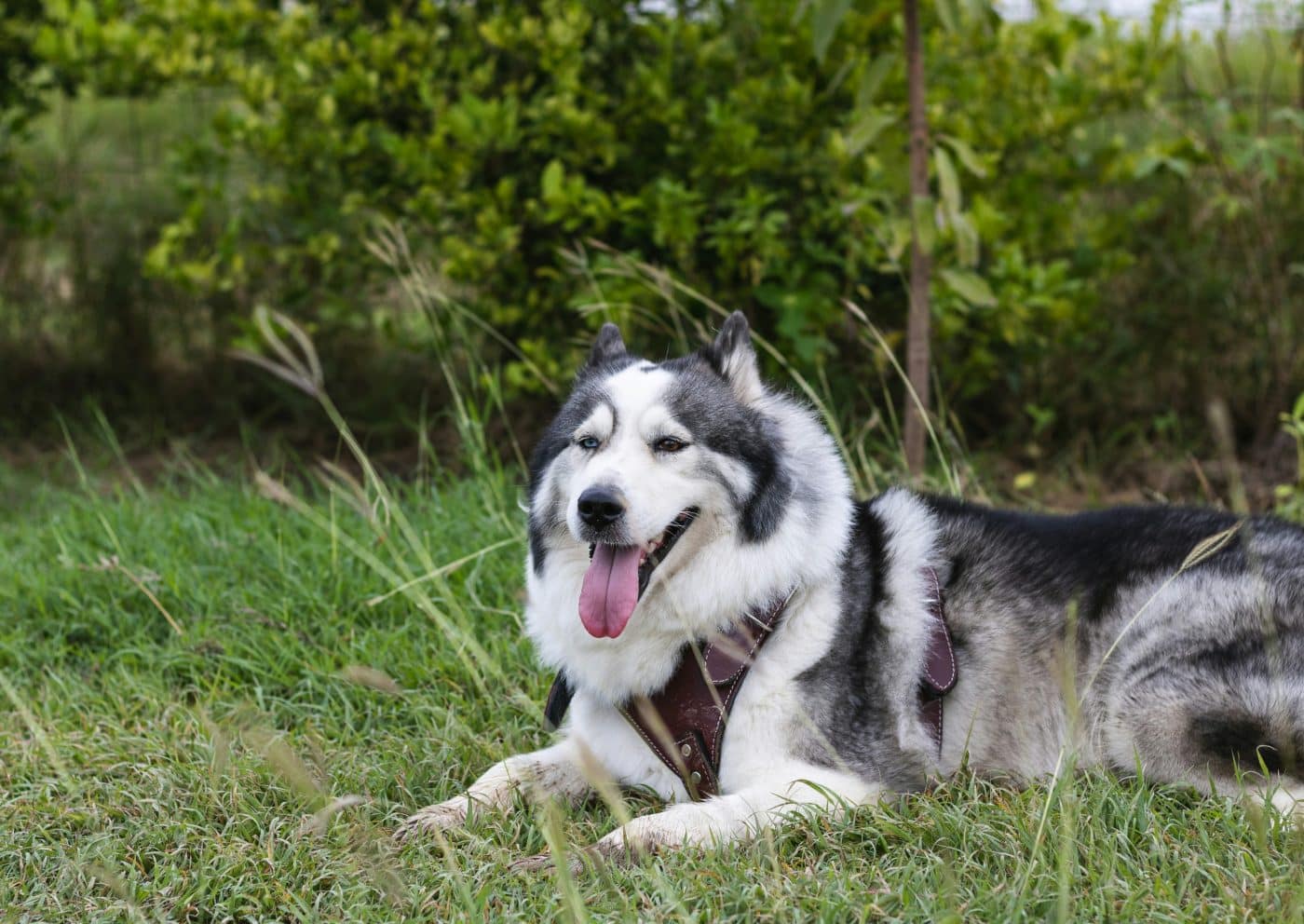 Shutterstock
Shutterstock
The Siberian Husky’s history is intertwined with the Chukchi people of Siberia, where they served as sled dogs for centuries. These dogs were bred to endure brutal winters and cover vast distances across icy terrain—sometimes traveling hundreds of miles at a time. Their pack mentality, stamina, and people-friendly nature made them the perfect travel buddies through the frozen wilderness. Huskies didn’t just tag along—they pulled their weight and then some, often while howling catchy travel tunes.
Afghan Hound
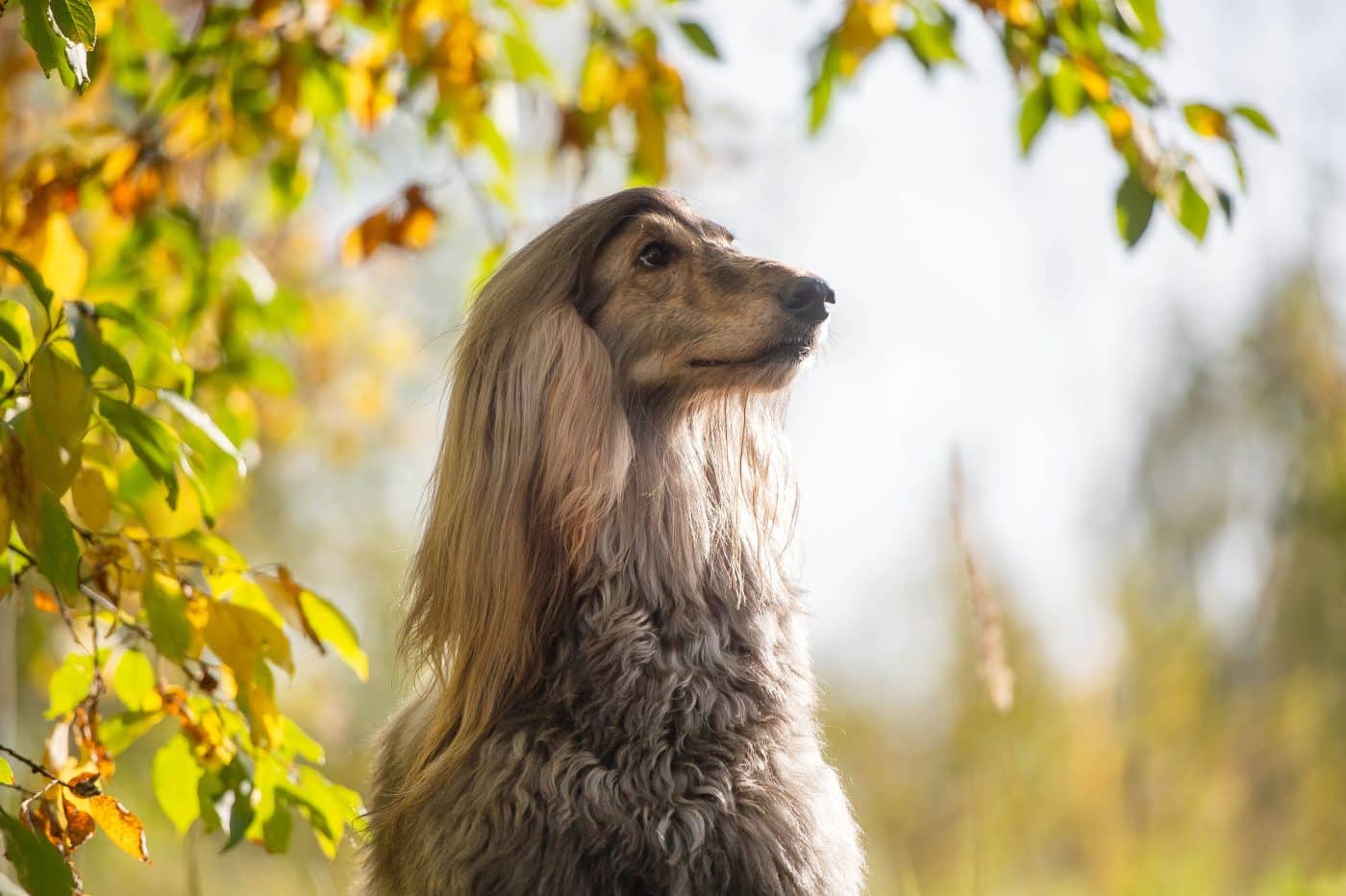 Shutterstock
Shutterstock
The Afghan Hound may look like it was born for luxury, but its roots are rugged. For thousands of years, these dogs accompanied travelers and hunters through the harsh mountain regions of Afghanistan. Their long, flowing coat wasn’t just for show—it protected them from cold and sand. They were valued not only for their beauty but also for their independence, agility, and endurance. Today, they walk like they still expect applause at every checkpoint.
Alaskan Malamute
 Shutterstock
Shutterstock
One of the oldest Arctic sled dogs, the Alaskan Malamute, has been pulling heavy loads and warming human feet for over 4,000 years. Originally bred by the Mahlemut Inuit tribe, these powerful pups helped transport supplies and hunt large game. With their wolf-like appearance and friendly demeanor, they were crucial to survival in the harshest of climates. If you needed a snowmobile before electricity, a Malamute was your best bet—with cuddles included.
Basenji
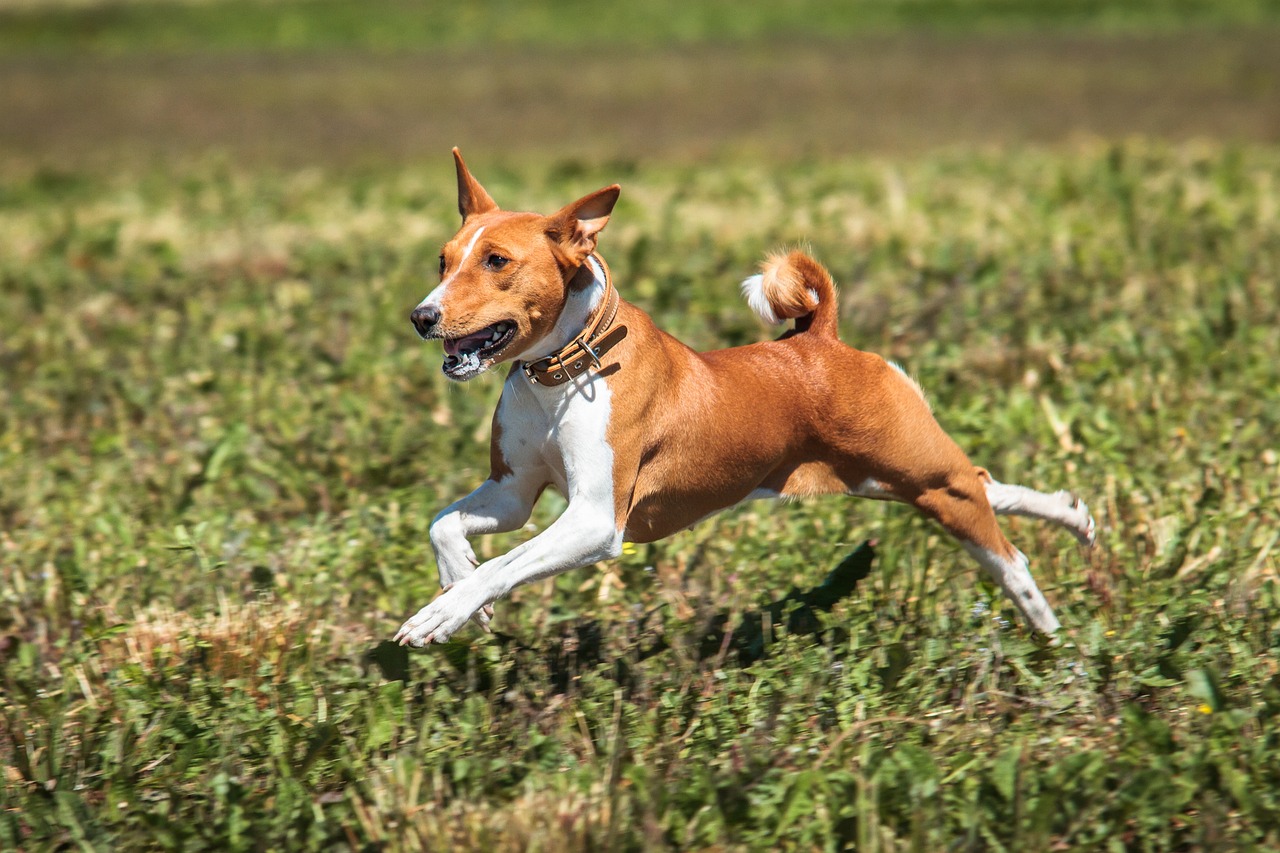 Shutterstock
Shutterstock
This ancient African breed has traveled alongside humans for millennia, particularly in Central Africa. Basenjis were prized by hunters for their stealth and independence—and they’re famously barkless, making them excellent for silent tracking. Their lineage is so old, they appear in ancient Egyptian artifacts. Compact, intelligent, and emotionally intuitive, Basenjis were both useful companions and mystical creatures in their own right. Plus, their judgmental stares suggest they’ve seen things… ancient things.
Tibetan Terrier
 Shutterstock
Shutterstock
Xoloitzcuintli
Despite the name, the Tibetan Terrier isn’t a terrier at all—but it is an ancient breed used by monks and nomads in the Himalayas. These dogs were the ultimate travel buddies on perilous mountain paths, helping herd livestock and serving as loyal companions in monasteries. Their thick coats protected them from icy winds, and their wide, flat feet acted like natural snowshoes. If any dog deserves a passport full of Himalayan stamps, it’s this one.
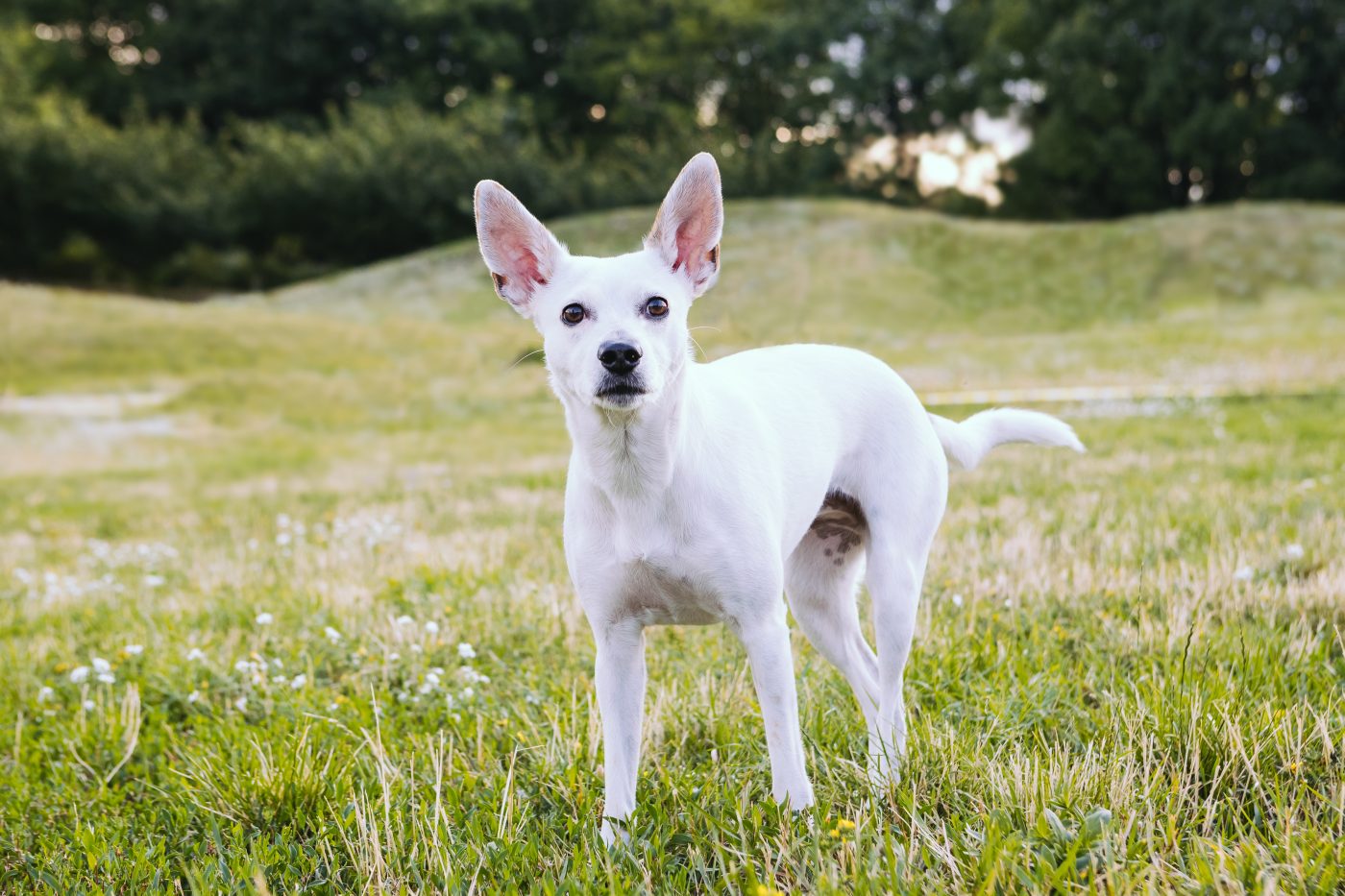 Shutterstock
Shutterstock
Also known as the Xolo (pronounced “show-low”), the Aztecs and Mayans considered this ancient Mexican breed sacred. For over 3,000 years, the Xolo traveled with humans through jungles and empires, acting as guardians, healers, and even spiritual guides. Their mostly hairless bodies made them excellent bed warmers—yes, that was an actual job. Today, they still walk with the kind of quiet confidence only a dog with centuries of mystical résumé could have.
Newfoundland
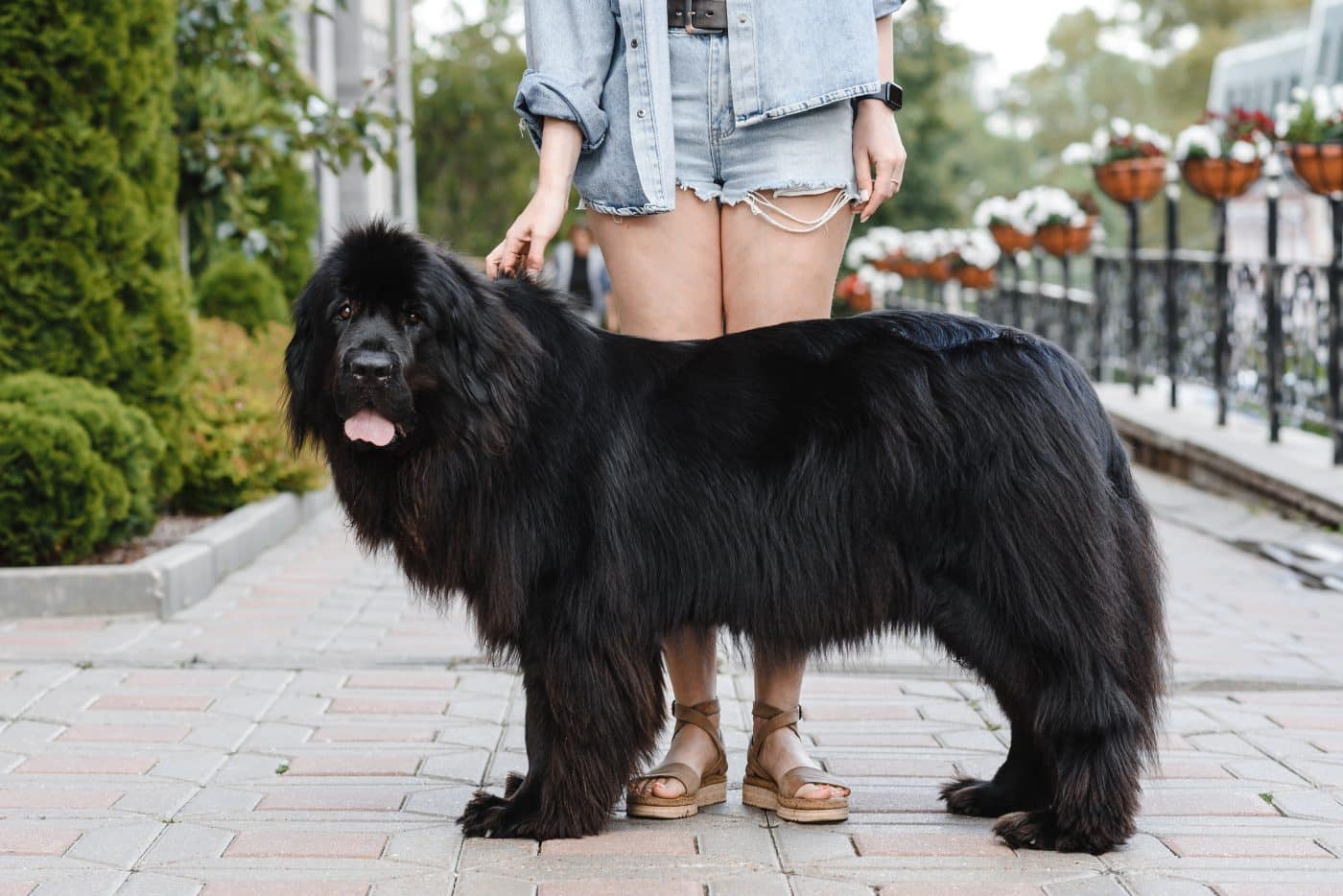 Shutterstock
Shutterstock
Bred for working alongside fishermen in the icy waters of Newfoundland, these massive dogs have been global seafarers for centuries. They’re famous for their strength, swimming ability, and water-resistant coat. Newfoundlands were known to leap from boats to save drowning sailors, haul nets, and deliver messages. They’ve been to more ports than your average cruise ship. If you’re traveling by sea, this dog’s your first mate (and lifeguard).
Akita Inu
 Shutterstock
Shutterstock
The Akita originated in Japan and has been a symbol of loyalty and strength for over a thousand years. Used by samurai and rural hunters alike, the Akita traveled across islands and mountains, guarding property and hunting large game-like wild boar. Their stoic demeanor and fearless nature made them trusted protectors in tumultuous times. And yes, Hachikō—the world’s most famous loyal dog—was an Akita. They don’t just travel; they wait.
Great Pyrenees
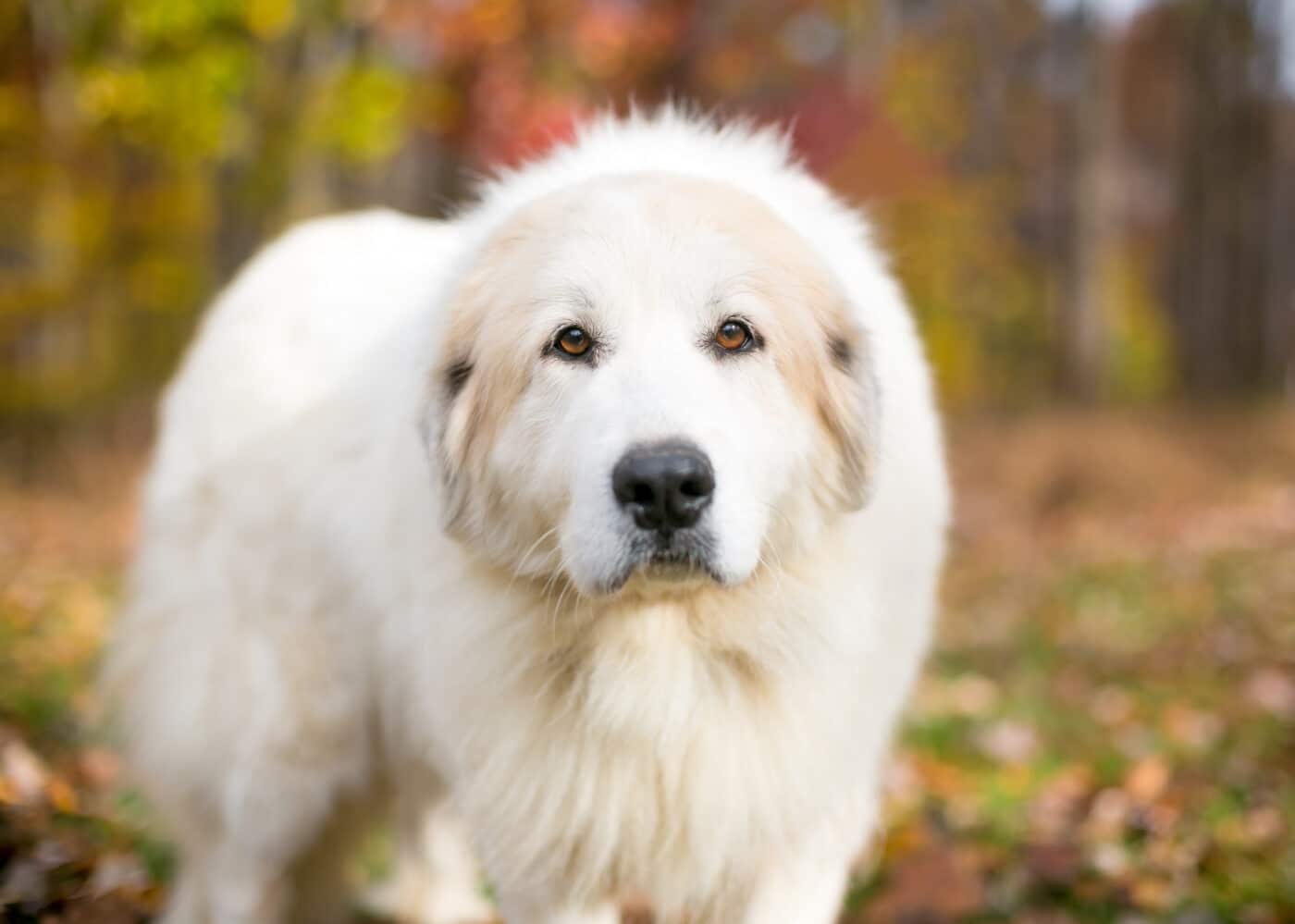 Shutterstock
Shutterstock
These majestic dogs have guarded flocks and traveled with shepherds across the Pyrenees Mountains for centuries. The Great Pyrenees were bred to be both independent thinkers and gentle giants, able to fend off wolves while still being affectionate companions. Their thick white coat made them blend in with sheep and withstand harsh alpine weather. If you were leading a herd through remote trails, this dog would’ve been the one silently scanning the horizon.
Dalmatian
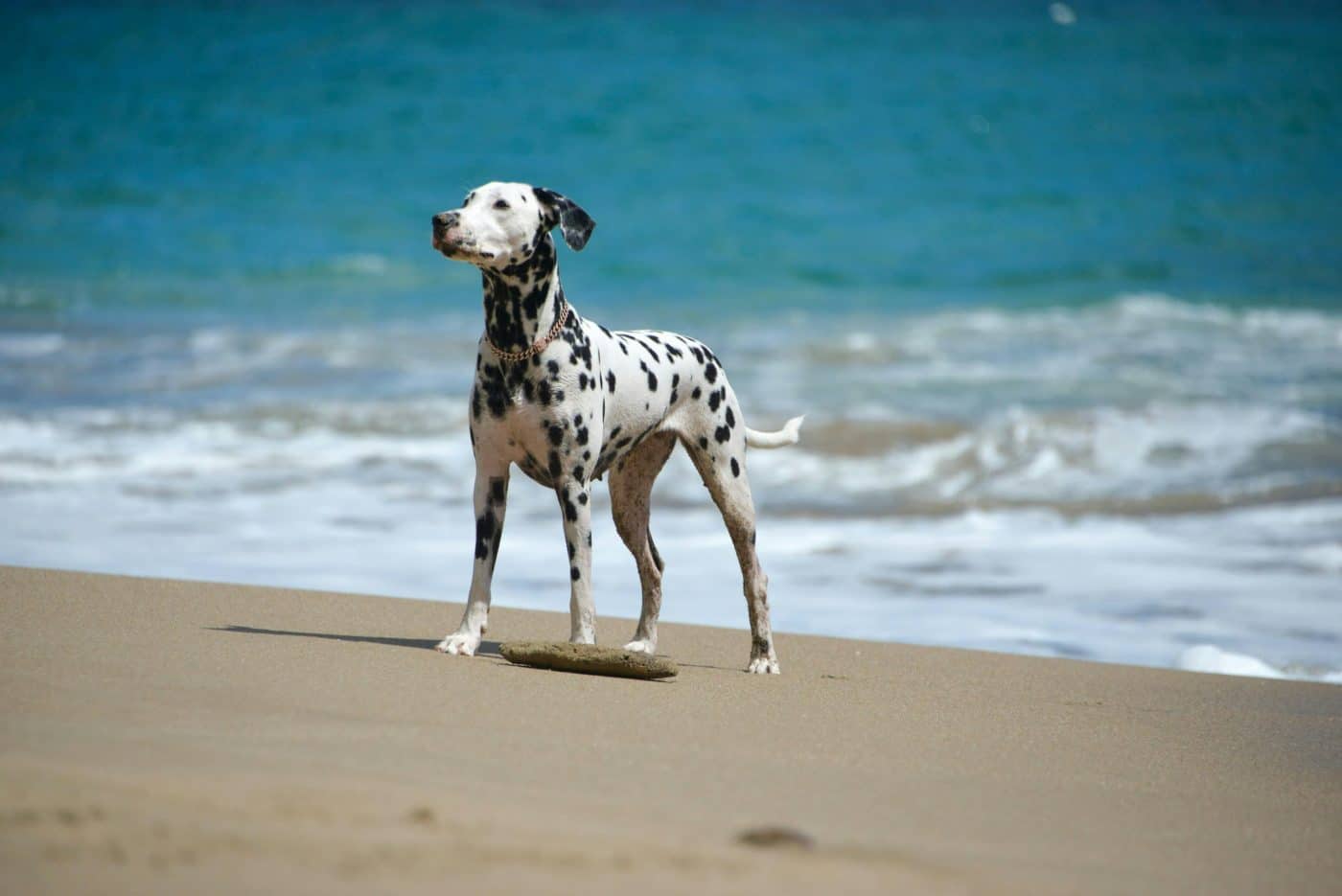 Shutterstock
Shutterstock
Long before they were firehouse mascots, Dalmatians were known as the ultimate carriage dogs. With their high energy and protective instincts, they trotted beside horse-drawn coaches throughout Europe, keeping both horses and passengers safe. Their origins trace back thousands of years to the Dalmatian coast in modern-day Croatia. Whether running alongside royals or wandering with Romani caravans, Dalmatians were the OG road trip guardians.
Canaan Dog
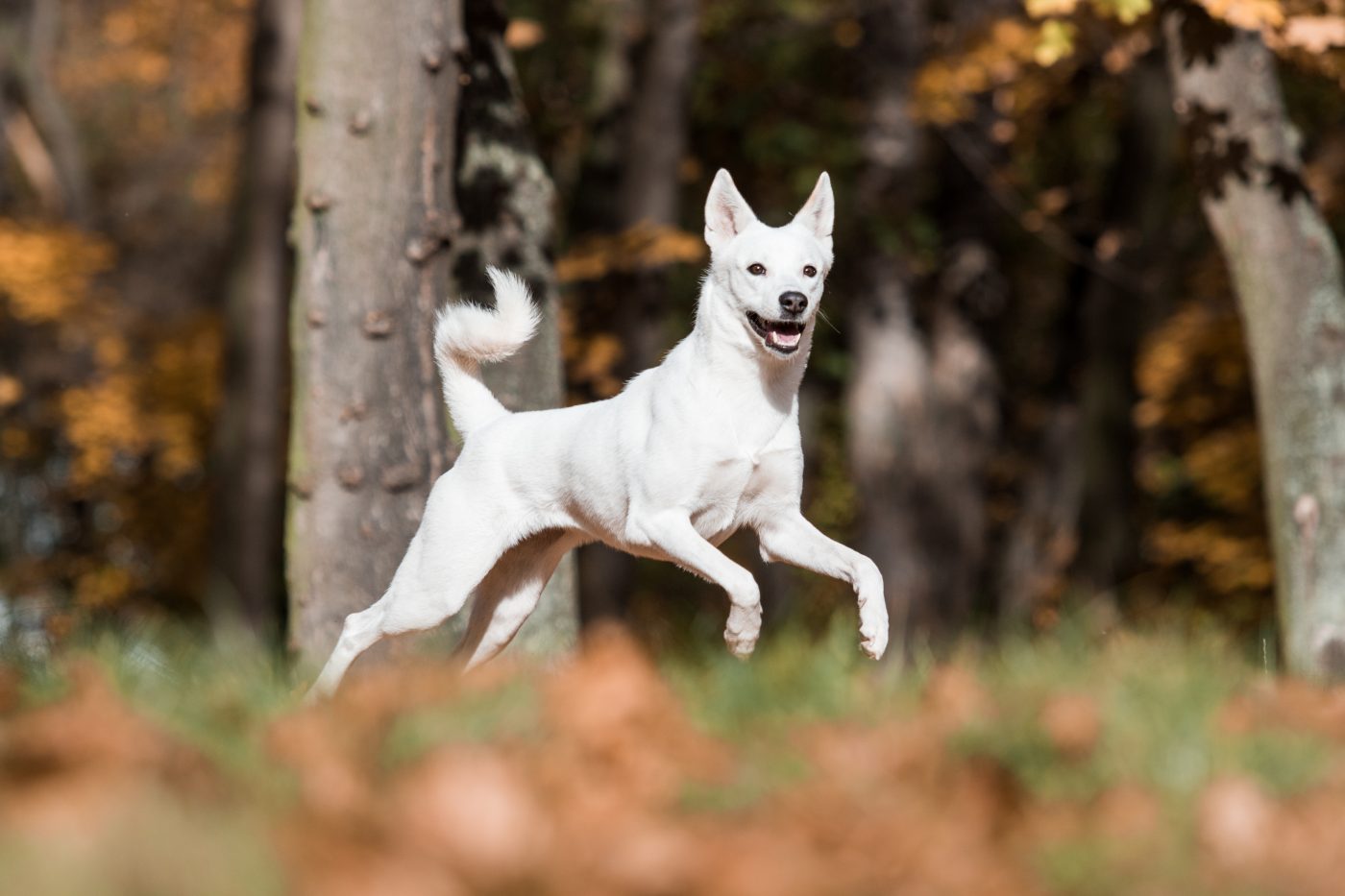 Shutterstock
Shutterstock
This rare breed originated in the Middle East and has been used for centuries by Bedouins to guard camps and herds. Canaan Dogs are desert survivors, perfectly adapted to heat, sand, and independent living. They traveled with nomadic tribes across harsh terrain, alerting them to dangers and sticking close to family units. Their strong instincts and loyal nature made them indispensable companions on the move.
Shar Pei
 Shutterstock
Shutterstock
This wrinkly wonder has a long and storied past in southern China, where it was used for guarding, herding, and even war. Shar Peis were known to accompany peasants and soldiers alike, traveling through rural towns and ancient trade routes. Their loose skin helped them defend against wild animals and intruders. And let’s be honest—they probably intimidated bandits just by looking like they could outthink them.
Portuguese Water Dog
 Shutterstock
Shutterstock
As the name suggests, this breed worked alongside Portuguese fishermen for centuries, helping herd fish into nets, retrieve gear, and carry messages between boats. They were strong swimmers, clever workers, and completely at home on the sea. These dogs earned their kibble and then some. With curly coats that resisted water and cheerful personalities, they were the ultimate nautical companions.
Greyhound
 Shutterstock
Shutterstock
Yes, the Greyhound—the racecar of the dog world—has ancient roots going back over 4,000 years. Bred in Egypt and revered for their speed and grace, Greyhounds have travelled alongside nomads, warriors, and royalty across continents. Despite their reputation as racers, they’re surprisingly mellow, making them excellent long-distance travel partners. Don’t challenge them to a footrace unless you’re okay with instant defeat.
The Real World Tour Was Led by Paws and Tails
 Shutterstock
Shutterstock
Long before luggage wheels rolled or first-class cabins existed, dogs were forging paths across deserts, oceans, and mountains. These remarkable breeds didn’t jump on the travel trend—they invented it. They ventured into the unknown beside us with a loyalty that never needed a suitcase and instincts sharper than any compass, guiding, guarding, and growing with every step. These pups weren’t just passengers; they were pioneers, trailblazers, and sometimes the best navigators on the journey—and let’s be honest, they probably claimed the comfiest sleeping spots too.
 Toledo, United States.
Toledo, United States.